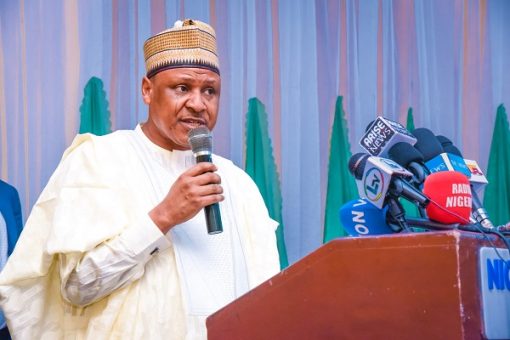The Chairman of the Economic and Financial Crimes Commission (EFCC), Ola Olukoyede, has announced the recovery of funds linked to the collapsed CBEX investment scheme, which defrauded over 600,000 Nigerians of a staggering ₦1.3 trillion before its collapse in April 2025.
Speaking on Thursday during an event marking Africa Anti-Corruption Day in Abuja, Olukoyede said the process of securing a final forfeiture of the recovered funds is underway. He, however, did not disclose the exact amount retrieved so far.
“Those who promoted that scheme are within our jurisdiction and have been arrested. They are currently being prosecuted,” he stated. “We have recovered money, and we are working on the legal process to ensure permanent forfeiture.”
The EFCC chairman condemned CBEX as a textbook case of virtual asset and investment fraud, warning that Ponzi schemes like it are proliferating across Africa, driven by public desperation and lack of due diligence.
“When people were receiving 100% returns in a week or a month, nobody reported to the EFCC,” he said. “It’s only when the scheme crashed that we were called upon to recover money as if by magic.”
He urged Nigerians to be more vigilant, describing investment scams as a growing national security concern. “Shine your eyes,” he warned, “because these fraudsters are getting more sophisticated.”
Olukoyede also revealed that foreign nationals were involved in CBEX and are part of a broader cybercrime network being dismantled by the Commission. In one operation dubbed Operation Flush, conducted in Lagos, the EFCC arrested a large number of foreign suspects linked to CBEX and other digital fraud operations.
“So far, we have secured nearly 150 convictions. Some are already serving jail terms, and when they’re done, they’ll be deported,” he said.
The EFCC boss emphasized that the agency is committed to pursuing every case to its conclusion, including complex cross-border investigations. “We’re not the EFCC that drops cases halfway anymore,” he added. “What we start, we will finish.”
He called on Nigerians to report suspicious financial activities promptly and avoid unregulated investment schemes. “The fight against corruption and financial crime requires not just enforcement, but public vigilance,” he concluded.




